The World Is on HR's Plate, and 7 Other Lessons from SHRM23
Here are a few nuggets of wisdom from sessions held exclusively for members of SHRM's Executive Network at last week's SHRM Annual Conference & Expo 2023 in Las Vegas.
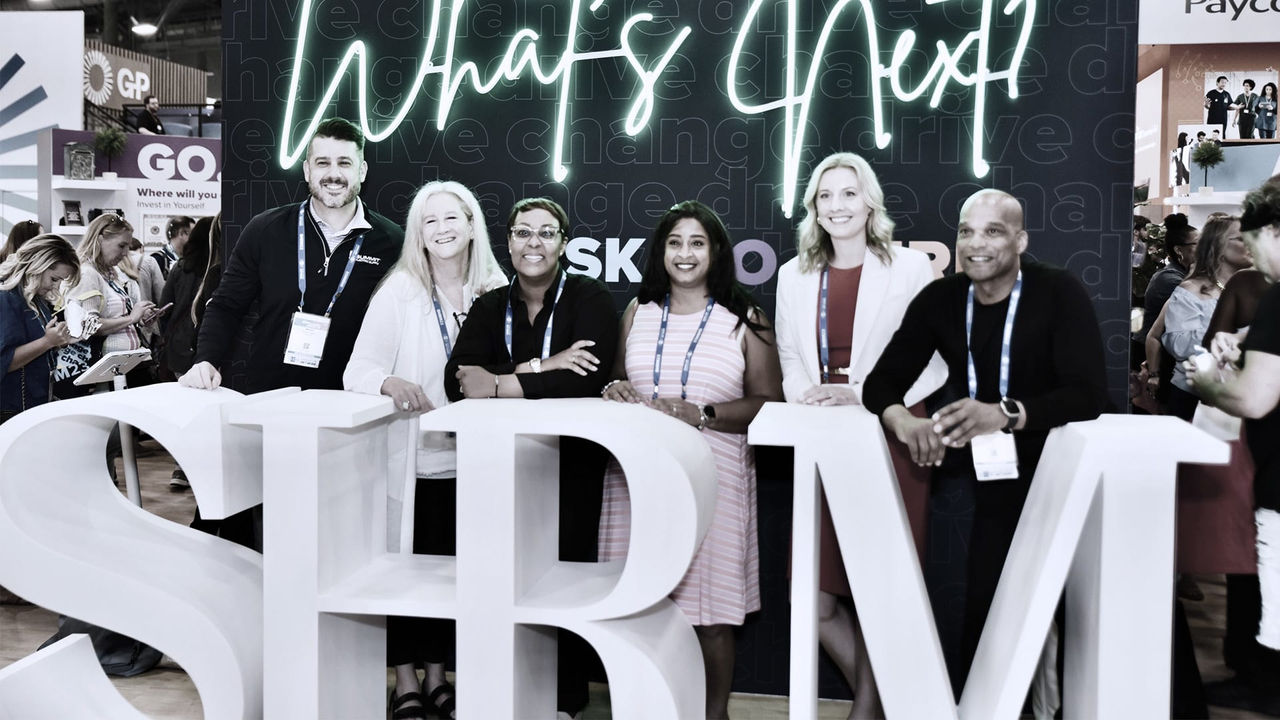
Last week's SHRM Annual Conference & Expo 2023 in Las Vegas attracted the world's largest gathering of HR professionals under one roof. The event also included thought-provoking sessions from top CEOs and HR thought leaders tailored exclusively to members of SHRM's Executive Network. Here are eight lessons and five additional quotes from the SHRM Executive Network Experience:
1. Like It or Not, the World Is on HR’s Plate 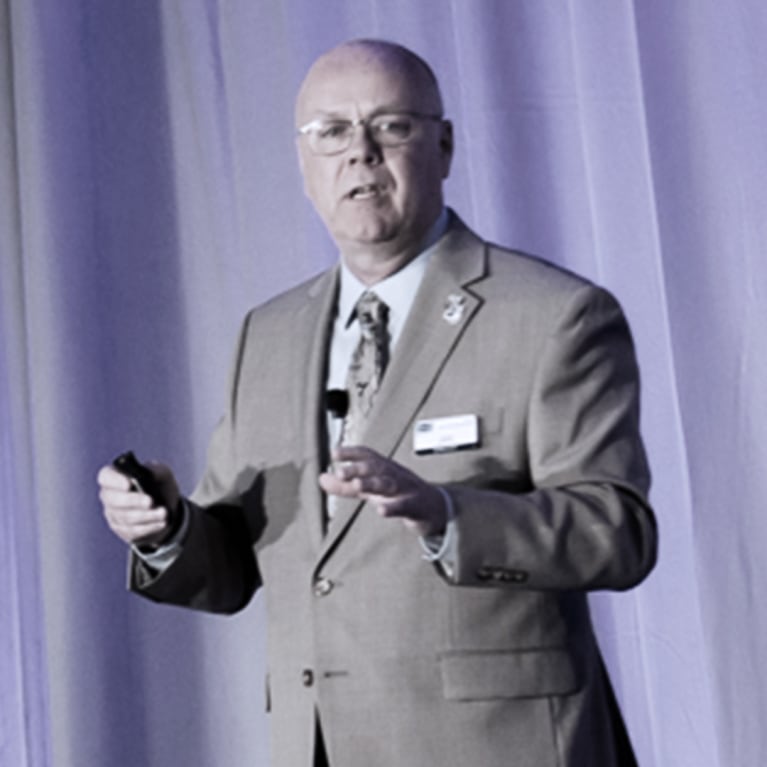
Three lightning-rod letters—ESG—have polarized the business community in recent years. Some say organizations' involvement in environmental, social and governance issues is just a PR stunt. Others have embraced social responsibility as an essential piece of their missions. Jim Link, CHRO of SHRM, said ESG doesn't have to be an all-or-nothing thing for organizations.
"ESG is not going away, but how you handle it is really the secret sauce," Link said. "Moving people from shareholder value to stakeholder value is going to become more and more a part of the descriptions of the jobs that most of us have or will have in the future.
"The organizations that I find are doing this particularly well have incorporated ESG as part of their intent, their mission, their values," said Link. "We as HR leaders need to be prepared, because when I think about this world, much of it is going to sit on our plates if it's not there already."
2. Growth and Comfort Can Never Coexist
When Ginni Rometty was early in her career at IBM, she was offered a promotion. But she didn't say "yes" right away, fearing that she wasn't yet ready for the jump. She eventually decided to take the job and excelled in it. That ultimately led Rometty to the CEO seat at IBM, which she held from 2012 to 2020.
"That really crystalized in my mind something I've always remembered: Growth and comfort can never coexist," Rometty said. "That's the biggest advice I can give, particularly to women, who statistically are known to call out all their faults before they focus on their good."
Rometty said that early promotion experience allowed her to identify those feelings of discomfort and fear, and to redirect them in a more positive way.
"When I would internalize it, I would start to feel 'Oh, am I nervous? Don't be afraid, that's a good thing because I'm learning,' " Rometty said. "That allowed me to start to equate risk and fear with learning, instead of negativity. And that allowed me to take on more risk and more risk because I saw these as growing opportunities."
3. Listen, Learn and Only Then Can You Lead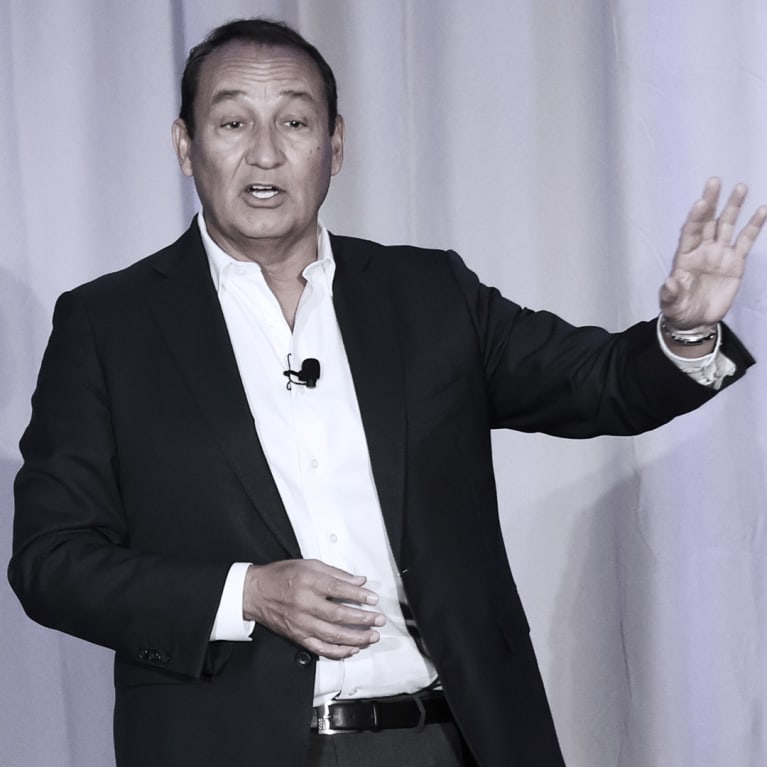
At the time that Oscar Munoz was hired as the CEO of United Airlines, he knew the company had completely lost employees' trust and confidence. Shareholders had lots of questions about how to fix it. "My answer was that I don't know those answers, but I'm going to go find out," Munoz said. So, in 2015, his first decision as CEO was to spend 90 days crisscrossing the country talking to hundreds of rank-and-file workers about their experience.
"I wanted to ask the people who know, by far, what's broken and what needs to be fixed," Munoz said. "The concept is this: Listen, learn, and only then can you lead. And, for me, the most fundamental part of that listening tactic is that, as a human being, you have to really care about the person you're talking to. … When you connect with people, even in a small but genuine way, you can capture the hearts and minds of such a larger group."
4. Get Your Board to Focus on the 'Soft Stuff'
Recent research by the nonprofit Just Capital found that organizations that do a better job in treating their employees well—in terms of factors such as pay, benefits, leave and quality of management—financially outperform the average U.S organization.
"At the board level, they often talk about the hard stuff and short-term profitability," said Jean Oelwang, CEO of Virgin Unite, the philanthropic arm of the Virgin Group. "But what really makes our businesses work is what they consider the soft stuff, which is the stuff that's important to employees. So, we need to start at the board level thinking about how we make this so-called 'soft stuff' the hard stuff. … This is what companies need right now is to focus on people."
Oelwang said that to help keep the focus on people issues, more organizations are rethinking the structure of their boards. Her examples: H&M has added three people from their employee base onto their board. At Qualcomm, 90 percent of the board members are independent directors. And an environmental dog-products company has someone on its board whose sole job is to represent nature.
5. AI’s Overlooked Benefit: Savings on Software
A hot topic among attendees and speakers at SHRM23 was the AI explosion and, specifically, how ChatGPT will impact the HR profession. While much of the HR discussion has focused on the task-saving benefits of this new tool—such as writing job descriptions, sourcing vendors and creating training programs—another potential perk of this AI revolution is the simplification of HR-related software, which will lead to the saving of time and money.
"That benefit is underestimated but is going to be very important," said Gad Levanon, chief economist at The Burning Glass Institute, a future-of-work research firm. He noted that every company uses dozens of pieces of software, and, in many cases, they require specific employees to specialize in working with that software. But that will change with new versions of AI.
"In the future, most of the interfacing with this software will become very easy and you'll reduce the need for specific talent that knows how to work with it. You'll just tell the software what you want implemented in plain English," Levanon said.
His example: To create employee surveys, an AI tool will be able to suggest questions, edit your questionnaire, send it to a specific employee list, write a presentation that summarizes the results and benchmark it against other companies. "And almost anyone with very little training will be able to do that just by speaking English to it," Levanon said.
6. The Best Approach to Change: Candor and Truth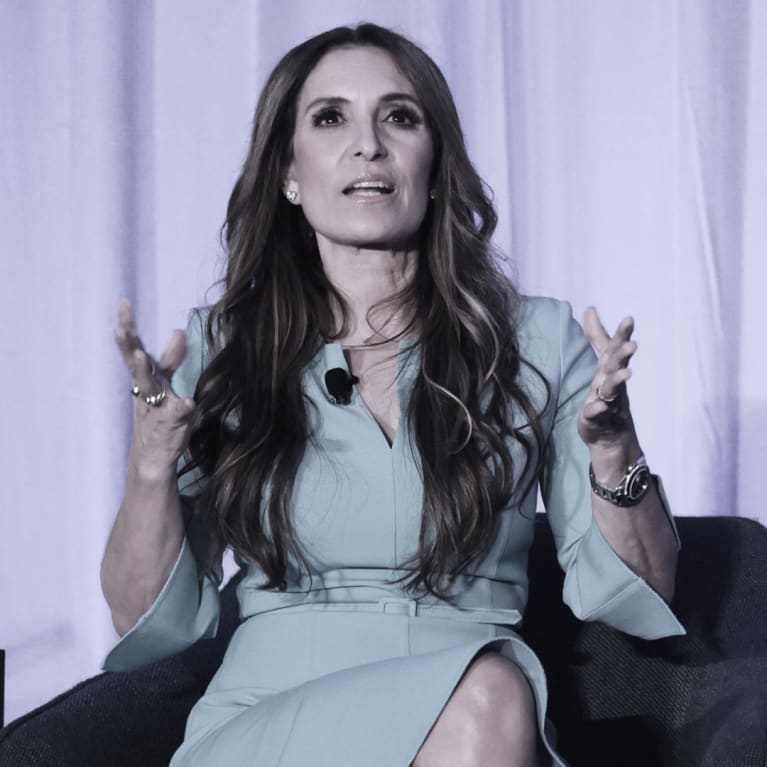
When Suzy Welch was in business school 40 years ago, change management was a big buzzword. She thought she was living in a highly volatile time then, "but that's nothing like what we're experiencing right now in this era of 'permacrisis,' where we bounce from one situation to another that requires us to reinvent and think of new ways of doing things," said Welch, an NYU professor of management and the wife of Jack Welch, the legendary former CEO of GE, who died in 2020.
"I don't even know if there's a thing called change management anymore, it's just management, which includes a huge amount of change," Suzy Welch said. "And the hardest thing about change is telling people it's coming and what it means for them. … You have to be very candid and truthful, because that clarity creates trust. People may not like you during change, but if they respect you because they trust you, take it. Choose the clarity, and don't try to smooth over the hard consequences of what change is going to bring."
7. Are You Communicating or Just Providing Information?
There is a difference between those two, said global futurist and researcher Daniel Burrus, and leaders need to make their communication more of a two-way street.
"You may think you're good at communicating, but you're probably only good at informing," Burrus said. "Informing is one way and static—'I sent you the document, but I don't know if you've even read it or acted on it.' Communication is dynamic and it's two-way. We're in the communication age, not the information age."
8. Structure Your Workplace for ‘Casual Collisions’
Loneliness has become an epidemic in today's workplace, sapping employees' productivity and harming their mental health, according to a new SHRM Research study that was unveiled at SHRM23. The COVID-19 pandemic led to lockdowns and a surge in remote work, which can contribute to feelings of isolation and disengagement. Your C-suite is aware of the problem; two-thrirds of CEOs say they are concerned that their employees are going to resign due to loneliness.
"Loneliness is real, and its effect on employee mental health has to remain a concern," said Annemarie Schaefer, vice president of research for SHRM. The SHRM report touts the benefits of so-called "casual collisions" for colleagues to interact and build relationships with co-workers.
"Give employees—whether they're hybrid or remote or in-person—the opportunity to connect both virtually and in-person, and then just let human nature prevail, because friendships are bound to form," Schaefer said. She noted that organizations are doing this in various ways, including creating more team-building programs and even restructuring the office itself. More organizations are breaking down cubicle walls and designing their layouts to spark collaboration and casual chats.
QUOTES FROM THE EXECUTIVE NETWORK EXPERIENCE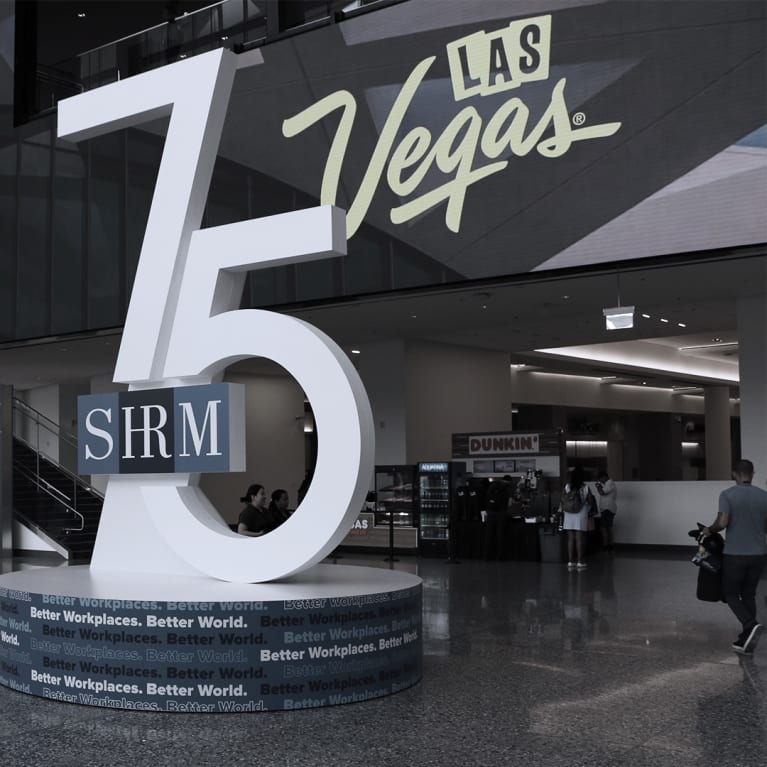
ROLE MODELS. "Whether we like it or not, we're role models for somebody. … And as more women become CEOs, what they do will become magnified and personalized. You just have to get a thick skin around that and not let your critics define you." –Ginni Rometty, former CEO of IBM
* * *
CHANGEMAKERS. "HR professionals need to think of themselves as changemakers, not peacekeepers." –Jim Link, CHRO of SHRM
* * *
TRUST. "Before you implement something new at your company, always ask yourself, 'If we implement it in this way, what will happen with the trust of our employees and customers?' If trust will go down, don't implement it in that way." –Daniel Burrus, technology futurist and author
* * *
AUTHENTICITY. "When you're authentic, people usually model it right back. That's because it gets really awkward if they remain phony while you're being real. … So, model authenticity in yourself and see if you can provoke it by being very candid." –Suzy Welch, NYU professor of management
* * *
LEADERSHIP. "Leadership is never, never, never about you. It's about the people you lead, and we forget that all the time in politics, in companies, everywhere we go." –Oscar Munoz, former CEO of United Airlines
Was this resource helpful?



